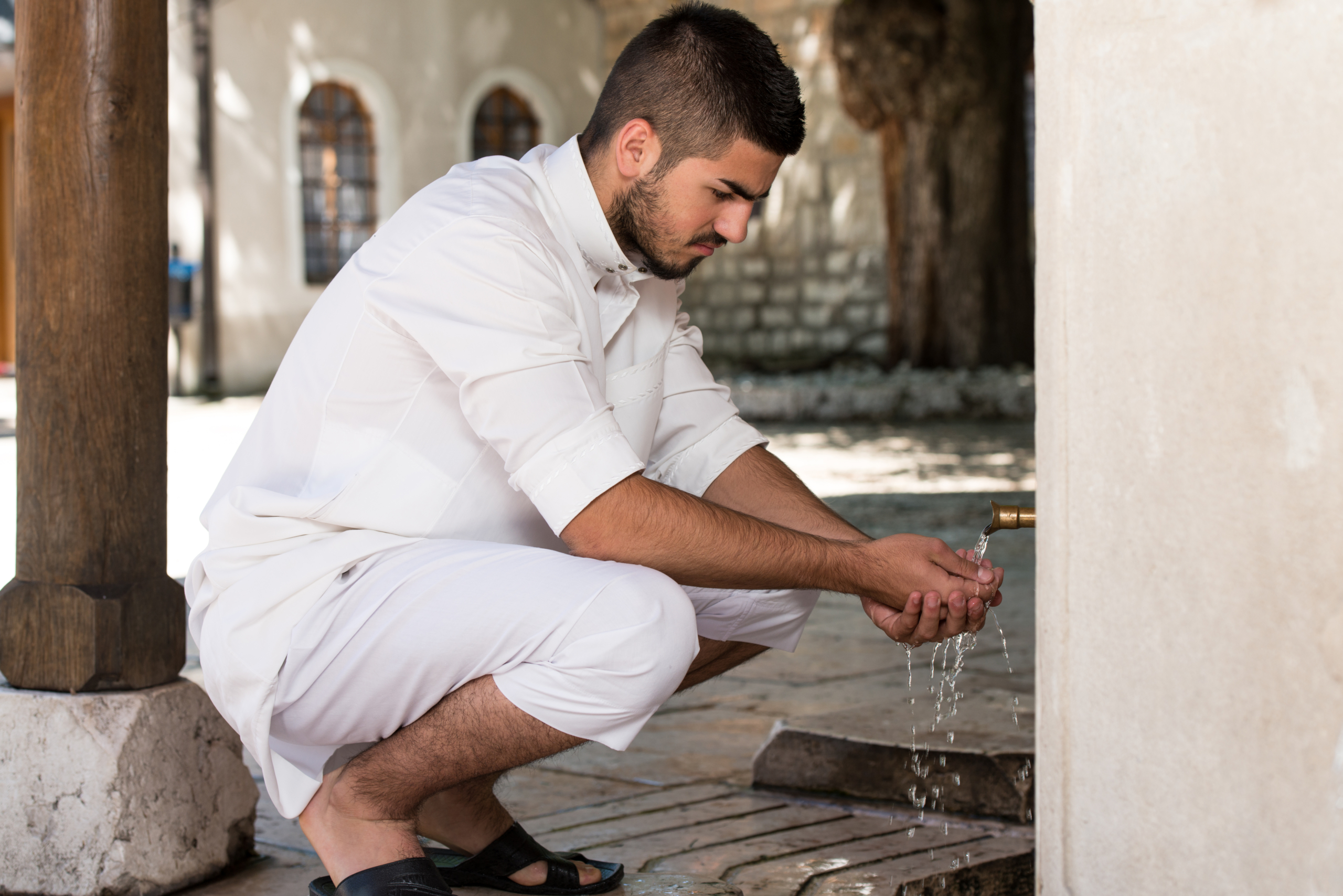Is Sequence (Tartib) of the Sunna Elements of Ablution Necessary?
Shafi'i Fiqh
Answered by Shaykh Irshaad Sedick
Question
I understand that order is an integral of wudu in Shafi‘i Fiqh, but if I did a sunna of ablution in between an obligatory part, would my ablution still be valid? For example, if I did hands, face, mouth, nose, arms, head, and feet because I did the mouth and nose after washing the face, is that invalid? And at what point should I rinse my mouth and nose?
Answer
In the Name of Allah, the Most Merciful and Compassionate. May Allah alleviate our difficulties and guide us to what pleases Him. Amin.
In the Shafi‘i School, maintaining the proper order (tartib) of the obligatory elements during wudu (ablution) performance is considered essential (obligatory) for its validity.
Observing the sequence is not a requirement for the Sunna elements of ablution, and fulfilling these elements in any sequence would not affect the validity of one’s ablution, and Allah knows best. [Hammadi, Fath al-Wahhab al-Malik]
The Integrals of Ablution
Allah says: “O believers! When you rise up for prayer, wash your faces and your hands up to the elbows, wipe your heads, and wash your feet to the ankles…” [Quran, 5:6]
Based on this verse (the order mentioned) and several Prophetic narrations, Shafi‘i scholars deduce that ablution has six obligatory integrals:
(a) to have the intention when one starts washing the face;
(b) to wash the face;
(c) to wash the arms up to and including the elbows;
(d) to wipe a little of the head with wet hands;
(e) to wash the feet up to and including the anklebones;
(f) and to do these things in the order mentioned.
The sunnas of ablution are all its actions besides the above. The obligatory minimum is to perform (b), (c), (d), and (e) once, though the Sunna is to perform them each three times. [Misri, ‘Umdat al-Salik]
The Ideal Sunna Sequence
Herewith follows the sequence of the ablution with the ideal sequence of the Sunna components added.
- Say the basmala (In the Name of God, the All-Merciful, the Especially Merciful)
- Wash the hands till the wrist (three times)
- Wash the mouth (and brush the teeth, especially with a siwak)
- Rinse the nose
(a) to have the intention when one starts washing the face;
(b) to wash the face;
(c) to wash the arms up to and including the elbows;
(d) to wipe a little of the hair on the head with wet hands;
– wash the inner and outer ear with wet fingers
(e) to wash the feet up to and including the anklebones;
(f) and to do these things in the order mentioned.
If, during the wudu process, you perform a sunna action (such as rinsing the mouth and nose) in between the obligatory actions, it does not invalidate your wudu. The sunna acts are recommended but are not obligatory for the validity of the ablution. Therefore, if you rinse your mouth and nose after washing your face but before completing the other obligatory actions, your wudu remains valid, and Allah knows best. [Hammadi, Fath al-Wahhab al-Malik]
I pray this is of benefit and that Allah guides us all.
[Shaykh] Irshaad Sedick
Checked and Approved by Shaykh Faraz Rabbani
Shaykh Irshaad Sedick was raised in South Africa in a traditional Muslim family. He graduated from Dar al-Ulum al-Arabiyyah al-Islamiyyah in Strand, Western Cape, under the guidance of the late world-renowned scholar Shaykh Taha Karaan (Allah have mercy on him), where he taught.
Shaykh Irshaad received Ijaza from many luminaries of the Islamic world, including Shaykh Taha Karaan, Shaykh Muhammad Awama, Shaykh Muhammad Hasan Hitu, and Mawlana Abdul Hafeez Makki, among others.
He is the author of the text “The Musnad of Ahmad ibn Hanbal: A Hujjah or not?” He has been the Director of the Discover Islam Centre, and for six years, he has been the Khatib of Masjid Ar-Rashideen, Mowbray, Cape Town.
Shaykh Irshaad has fifteen years of teaching experience at some of the leading Islamic institutes in Cape Town). He is currently building an Islamic podcast, education, and media platform called ‘Isnad Academy’ and has completed his Master’s degree in the study of Islam at the University of Johannesburg. He has a keen interest in healthy Prophetic living and fitness.
